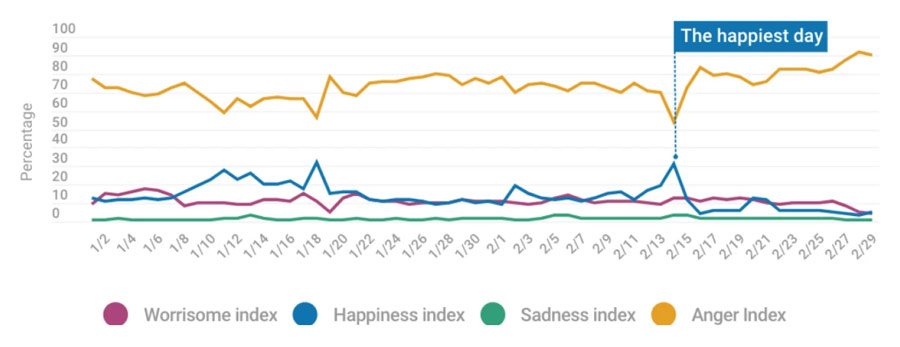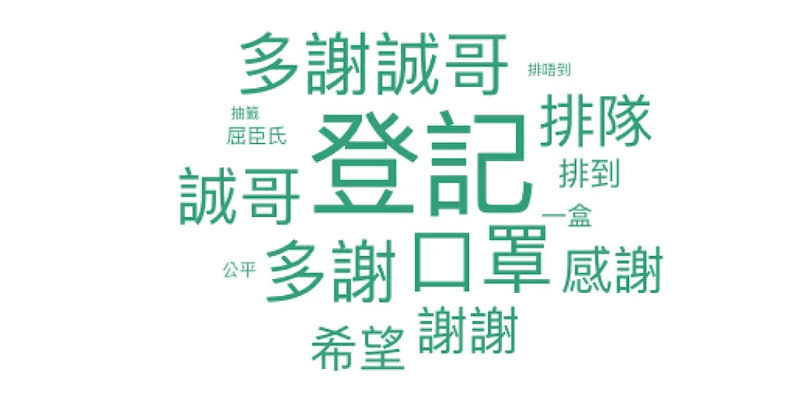Mask has become an important factor that affects netizens’ sentiment amid the spread of the COVID-19 pandemic, especially in the initial period of the pandemic when it was extremely difficult to buy a mask. Data showed that it was not Valentine’s Day but the mask that pushed up netizens’ “Happiness Index” to a peak on February 14 during the first wave of the pandemic.
Availability of masks makes people happy
Wisers analyzed over 29.15 million posts of netizens during January 1 and September 6, 2020 via its AI Lab and inferred their emotions, which are divided into four categories psychologically, namely happiness, sadness, panic and anger. Then it calculated the proportion of netizens who expressed happiness. After reviewing the posts, Wisers found that netizens felt happy on the discussions that Watsons owned by local wealthy businessman Li Ka-shing opened its online registration system for the public to buy masks via real-name registration.
Regarding the hot words in posts, “registration” was the most frequently mentioned on that day (721 times), followed by “thanks Li Ka-shing” (470 times), “Li Ka-shing” (428 times) and “Watsons” (174 times). The hot words reflect that netizens felt excited for mask supply and they thought the real-name registration system was a fair measure to prevent hoarding and profiteering. Many netizens made comments to express gratitude to Li Ka-shing. They felt happy as merchants did not raise price of mask to make profit. The most pleasing post came from the website of Watsons which attracted up to 1.49 million visits. According to big data, Watsons ranked second among mask brands discussed by netizens.
Shopping spree of mask is on the decline; netizens’ focus switches to “work from home” policy
In the middle of the year, the supply of masks returned to normal gradually and even oversupply occurred. Thus, netizens’ sentiment was less affected by masks. After their concern about mask supply was eased, netizens shifted their focus to bread-and-butter and long-term issues. Wisers AI Lab found that netizens’ “happy mood” was elevated again on July 20, when the third wave of COVID-19 pandemic broke out with a soaring number of confirmed cases. The government announced work-from-home arrangements for civil servants again a day earlier, arousing heated discussions among netizens. They expected private institutions to follow suit to allow their employees to work from home. Among the online posts, hot words included “the government” and “civil servants” which were mentioned 647 times and 83 times, respectively.
The data revealed that the availability of masks and the possibility of working from home can make citizens happy amid the raging pandemic. It reflected the reason behind netizens’ happiness during these days of fear and insecurity was that they became hopeful about buying masks and working from home. Will such sentiment continue until the fourth quarter? As the pandemic becomes more severe, many employees are allowed to work from home as they wish. However, will netizens really become happier for that? For more detailed analysis, please read the article titled “Market and Pandemic Are Inter-related: A Year of Pain for the Working Class”.










